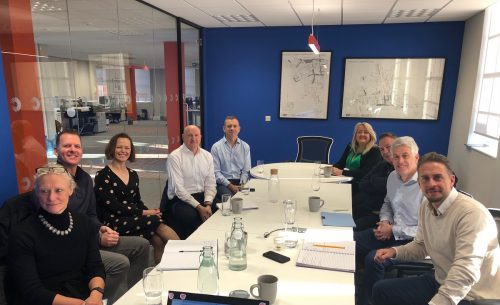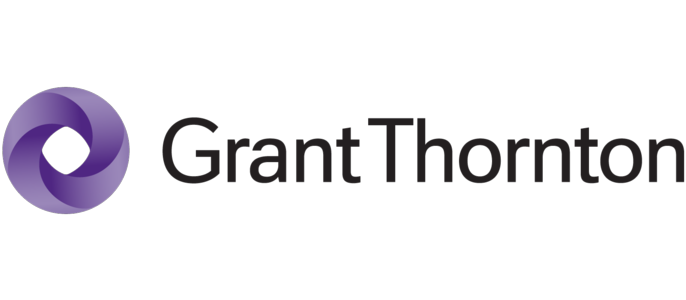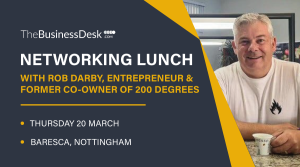Round table report: Pathways to growth in challenging times


Our latest round table brought together business leaders to share how they are addressing the challenges around growing their business.
Our panel was:
Nick Gillott, Grant Thornton
Hannah Moore, Grant Thornton
Ashley Cowdrey, Chord Consult
Stephen Loftus, Wattbike
Steve Hampson, Harlaxton Estates
Stephen Fern, 200 Degrees Coffee
Vember Mortlock, Roythornes
Richard Postlethwaite,Copley Scientific
Laura-Jayne Turner, Jigsaw24
Sam Metcalf, TheBusinessDesk.com
We kicked off by asking our panel how they saw the growth prospects for East Midlands companies at present.
Nick Gillott of Grant Thornton thought the picture was sector dependent. He added: “Beyond that – it comes down to what a company’s balance sheet looks like.
“The change in interest rates was a challenge and continues to be. It’s hard to invest for growth if you have a balance sheet that is highly leveraged.
“What’s more, over the last five years there has been little or no normality. However, relatively, right now feels about as stable as its felt for quite some time.”
Hannah Cooke of Grant Thornton said she thought Jeremy Hunt had put a brave face on the announcement he made during the Autumn Statement.
She said: “I think it’s fair to say the positive mood put across by the Chancellor wasn’t really mirrored by businesses out there, who found the measures introduced less welcome.”
Stephen Fern of 200 Degrees agreed. He said: “The Autumn Statement didn’t provide much for the hospitality sector other than maintaining the rates relief and cap levels that currently exist.
“Unfortunately for many small businesses I think the minimum wage uplift with no compensating support will see lots of businesses handing back their keys over the next 12 months. We will continue to focus on driving productivity through our business to help offset some of the future rises in our cost base.
Ashley Cowdrey of Chord Consult felt his company was slightly more insulated. He said: “It’s a little bit different in the professional services sector because not paying minimum wage. It doesn’t affect us the same as it’s affecting you.
Steve Hampson of Harlaxton Estates said it wasn’t a statement for businesses. He added: “The Minimum Wage won’t go down with a Labour government. I think there seems to be a real disconnect between this government and the real world. Businesses haven’t yet had a full year of the higher rate of corporation tax, and now they’ve been hit with another experience. I was disappointed.
The conversation turned towards organic growth – and whether this was possible.
Vember Mortlock of Roythornes described the situation as “challenging”. She added: “Some firms in our sector have gone down the PLC route and there is often private equity circling.
“We’re in a good position, but some of the small guys are really struggling – especially in attracting talent. We do it because we base it around our culture, and if you buy part of the business by becoming a partner then you have skin in the game.”
Richard Postlethwaite of Copley Scientific outlined the drive to become a trusted partner to his company’s clients.
He said: We’re dealing with companies where there is a big drive for efficiency. We can sell our products – but at the same time become a ‘thought leader’ and in that way influence the market. Often, when we create new products our customers don’t even know they need them.
Stephen Loftus of Wattbike thought his industry was “stabilising” after a huge boom during the pandemic, followed by a tougher market when society opened up again.
He said: “We’re looking back towards international growth. However, there remain complications around the supply chain. We’re trying to onshore the supply of some of the parts we need.
Laura-Jayne Turner of Jigsaw 24 was also looking to reignite her international customer base – but was also targeting the public sector. She added: “Getting products across Europe can be painful, and so we’ve identified the public sector as one of our target growth areas. We’re diversifying into a broader service market to keep profitability up.
Many, of course, are looking at mergers and acquisitions (M&A) as a route to growth.
Gillott said that the pandemic changed the landscape. “Covid really stalled M&A for six-to-seven months. Transactions slowed down, and lots of business had to adapt to a new world. But 2021 was incredible and the nine months to September 2022 were great for M&A. This was followed by the short period of a change in Prime Minister and events following that subdued M&A activity once again.
“We are now seeing more encouraging signs of increased activity as companies seek to increase their capabilities and footprint, and with a General Election on the horizon, this is aligning with some private company shareholders considering whether it is time to exit or de-risk ahead of further uncertainty in the future ”
Inflation is falling, but is still relatively high compared to recent times. We asked the panel if inflation was still a drag on their business.
Hampson said there are two challenges in commercial property: land costs and build costs. He said: “Whenever there is a risk there is opportunity; we’re building – I don’t believe there’ll be a recession.”
Cowdrey asked Hampson how much credence he gave to the planning changes announced in the Autumn Statement.
Hampson replied: “It all helps. The speed of planners is shocking, and most of that is down to a lack of resource that planning departments at councils have.
“The banks are ready to commit to the right type of developer – they just don’t have the right type of clients.”
With a General Election on the horizon, how was this affecting the confidence to invest?
Loftus thought that the impact of Covid outweighed anything an Election could bring. He said: “Covid has such enormous impacts – those are the more significant. Combine that with the impact of Brexit and it all creates lost operational efficiencies that take a long time to recover.
Turner said her business has some light at the end of the tunnel. She said: “Things are slowly and steadily improving. The Truss Budge was a kick in the teeth, but we’re now in position to grow again. But now in a position. PE will want to exit in the near future.
Hampson said that a Labour victory isn’t worrying him. “Let’s see what Labour can do,” he said. “If we look at the challenges we’ve all been through in our working lifetimes – they’ve been cyclical. However, in the last five years they’ve been annual. I think we all have resilience and the ability to adapt now.
Fern had on his wishlist for any new government, sector specific representation. He said: “Whatever happens, we’ll continue to focus on providing experiences for our customers. I just wish for a nice benign period for a while!”
Gillott said: “The problem we have at the moment is that it’s hard to make long-term decisions. People are now taking short to medium-term decisions and asking what a General Election may mean for their business. However, there are opportunities for growth if business owners are interested in M&A. Timetables might be stretched, so I’d urge them to start the conversation.
Cooke added: “My best advice would be: take a step back and be prepared. Look at the bigger picture. What a lot of businesses have built over recent times is the ability to react and change. People have done that successfully – and they can use that in the quest for growth.”








